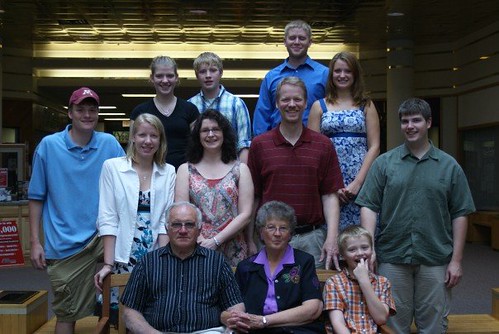Many consider Facebook‘s wonderful usefulness for personal networking a liability when it comes to business use of Facebook. They think personal and professional B2B networking shouldn’t be mixed in one platform. They’re particularly concerned about personal photos, videos and wall posts causing embarassment in their work world.
I’ve written before about how the Limited Profile in Facebook can eliminate many of these concerns. One problem that remains is the presence of your applications as part of your profile. You may not want to share your 24 Quote of the Day with your colleagues and customers.
So, here’s a way that you can maintain all of your professional contacts in Facebook, without divulging any personal information.
Create a Group in Facebook, like I did with Lee Aase’s Professional Contacts. You can have all of your professional business information there, with nothing personal. You can set yourself as the only one who can upload photos or videos. If anyone “tags” you in a Facebook photo, it won’t show up in this group. I suggest you name it with that same naming convention I used, i.e. “Joe Smith’s Professional Contacts.” You’ll see why in a bit.
When people search for your professional contacts group, they will get a result like this.

By calling it “FirstName LastName’s Professional Contacts” it will be easy for people to find your group, even if your name is common, like Joe Smith.
The other thing you can do is put a link to this group in the side navigation of your blog, like I did near the top right of mine.

However they get there, by searching in Facebook or by clicking a link in your blog, people can join the group to be among your Professional Contacts.
They don’t have to become your Friend and share personal information. They can send you messages within Facebook, and you can send them messages, just by being part of the same group. Having the group merely enables you to keep a list of their names handy. And if they reciprocate by forming their own Professional Contacts groups, they can build a similar profile that has only their relevant professional information, not their favorite movies, politicans, TV shows or Whom they worship. But it can have their phone, address and other contact information, to make Facebook a useful Rolodex for professional information.
Note: If you do this you likely will want to change your “Poke, Message and Friend Request” privacy settings, so that when you send a Facebook message it won’t open your profile. I’ve dialed back my settings for this reason, not so much because I’m that concerned about my privacy, but for demonstration purposes.

Is this the perfect solution? No. Ideally we will want a separate class of “friend” that lets us completely manage what information we want to share. I’m sure that’s coming. But this is a MacGyveresque workaround that has the benefit of creating an alternate profile with only professionally relevant information.
Update Sept. 1, 2008: This post is now over a year old, and as I had predicted, the ability to group friends and assign different levels of access to your profile to various kinds of friends is now available. To learn how to do this, see Facebook 210: Professional Profile, Personal Privacy.












 Technorati: Brad Paisley, Online, So Much Cooler Online, MySpace, Facebook
Technorati: Brad Paisley, Online, So Much Cooler Online, MySpace, Facebook


















